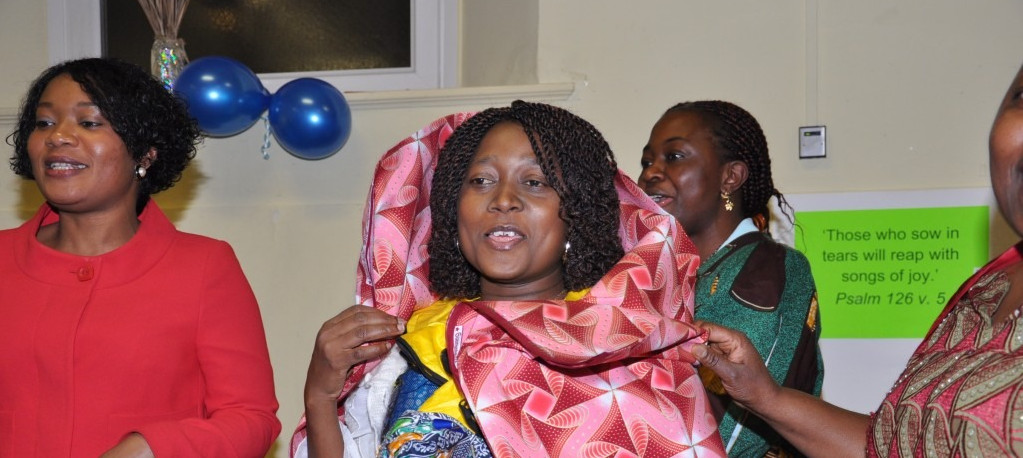
Our History
Rather significantly, the young and dynamic ABI-UK was born in the year of the Millennium – summer 2000.
It was a serene summer evening in the relatively affluent city of Reading, in the South East of England. Yes, you guessed it right – a memorable private BBQ event was in order, with an audience that could well be likened to a UN general assembly.
In the bustling ambiance, a new UK entrant, the visionary nyango Mrs Brenda Done, amidst the excitement of her first encounter with “a sister” nyango Ms MboneNzumebong (a UKancienne), naturally inquired “what could be the reason behind the absence of a Bakossi association in the UK?” Dazzled by the significance of this question, Ms Nzumebong approached “a brother”, Dr JeyNgole, also at the BBQ event, to reflect and exchange views on the question. To Dr Ngole, subsequently the founding President, it was the question behind the question that mattered – what is our contribution in shaping the collective destiny of Bakossi, the people, the language and the land?
Between the three aforementioned, several telephone calls were subsequently made and the first ever Bekosse (people of Bakossi) meeting was held on October 22, 2000. The association was tentatively named the “association of Bakossi indigenes in the UK (ABI-UK)” during the second-ever meeting session of Bekosse in the UK. This name has come to stand the test of time.
Incidentally, ABI is the Bakossi name for kola nut, in Akose (Bakossi language). The kola nut or ABI bears fundamental significance in Bakossi. It is a symbol of peace, hospitality and unity. Founded on these tenets, ABI-UK has, within a very short time-span, gained unrivalled respect and admiration from the wider UK-resident Cameroonian community, through its often breath-taking exhibition of the richness and depth of the Bakossi culture.
Today, ABI-UK is, more than ever before, forging ahead in the true spirit if its motto: “Bond of Unity”. The “family” has transitioned from meeting once a month, through a hosting rota framework, to meeting once in two months.
The Bakossi Land And People
The Bakossi Land
The Bakossi (Bekoosé) are an indigenous ethnic group settled on the slopes of Kupe and Muanenguba Mountains, at a distance of about one hundred miles from Limbe (formerly Victoria), on the Atlantic Coast. They constitute a part of the modern nation of Cameroon, located in the Gulf of Guinea, at the angle where the West African coastline turns southwards. Separated by post-World War I partition of German Kamerun, a majority of Bakossi are found in the English speaking (west) and a minority in the French speaking (East) parts of Cameroon.
The people are called Bekoosé, singular Nkoosé, though this too is used in a special way to designate the whole people. The Europeanised appellation is Bakossi, though it often lends to some confusion as it refers at once to the people, the land and the language. The land is called Ekoosé, Bakossiland and, the Language is called Akoosé.
The Bakossi people occupy an area of more than 3,000 square kilometres of both highlands and lowland on the western and eastern slopes of the Bakossi Mountains; Mt. Kupe, Mt Muanenguba and Mt Nlonako in the Republic of Cameroon. It has fertile soils, watered by streams that rise in the mountains, and is covered by dense forest which contains a wide variety of trees, birds and animals.

The Bakossi People
Bakossiland has a population of 200,000 and the Bakossi people grow coco yam, cassava and some corn for food. For cash our people cultivate coffee in the higher parts and cocoa lower down.
Administratively, the Bakossi people fall under the Kupe-Manenguba Division headquartered in Bangem, and the Mungo Division in the Littoral Province. Kupe-Manenguba Division is the second largest producer of cocoa in the South West Province of the Republic, and is composed of three subdivisions: Bangem, Tombel and Nguti.
The Bakossi Forest Reserve of 5,517 square kilometers (2,130 sq mi) was created in 1956. In 2000, the main section of Bakossi was designated a protection forest. All logging was banned and Kupe became a "strict nature reserve". The local Bakossi people participated in delineating the boundaries. There were large gains in management effectiveness of the forest.
The Mwanenguba Mountain (2,411m) is situated to the north-west of the town of Nkongsamba. The crater of this volcanic mountain, at 1,950 m, is a large grassy plain with a few low hills, a marshy area to the south and two deep volcanic lakes (twin lakes of Muanenguba). The larger female lake is the only accessible of the two.
The smaller male lake is inaccessible due to its obscene character and the traditional belief that it is inhabited by supernatural beings that can inflict punishment upon anyone who dares to go close. This male lake is surrounded by trees, but not even a leaf falls into it. A stone thrown into it with any amount of force will always land on the banks! The Muanenguba Mountains and the mysterious twin lakes make for a great touristic site.




